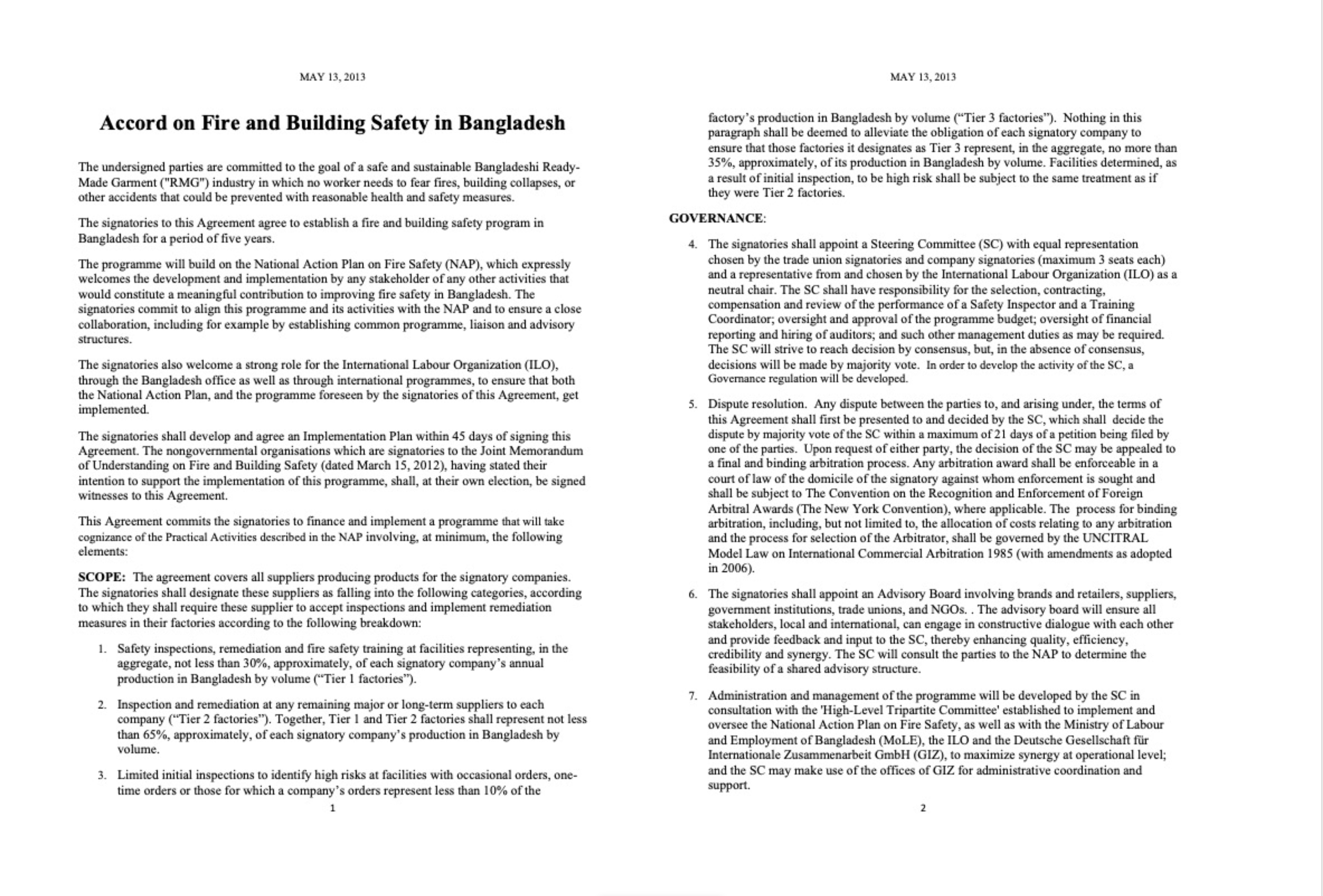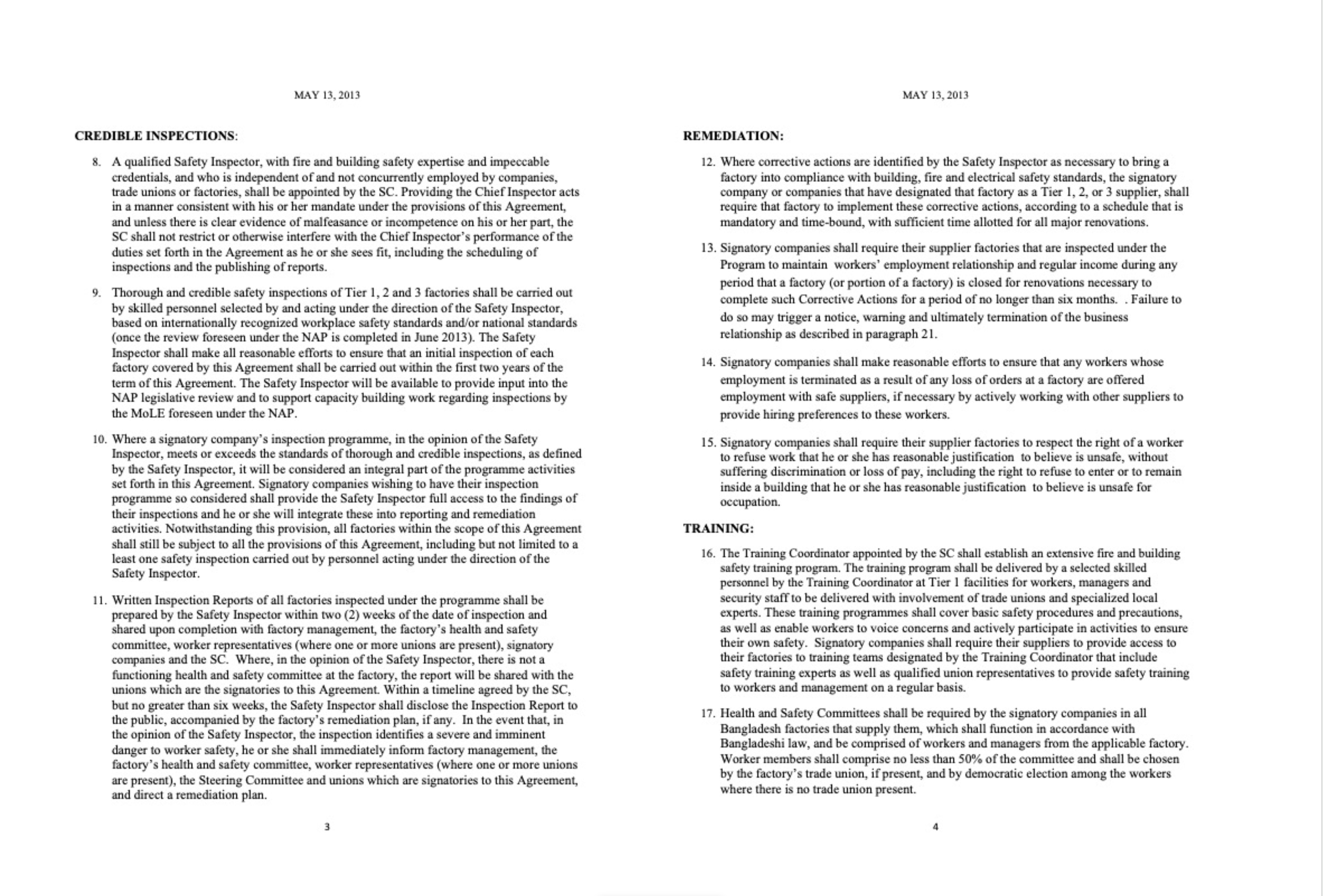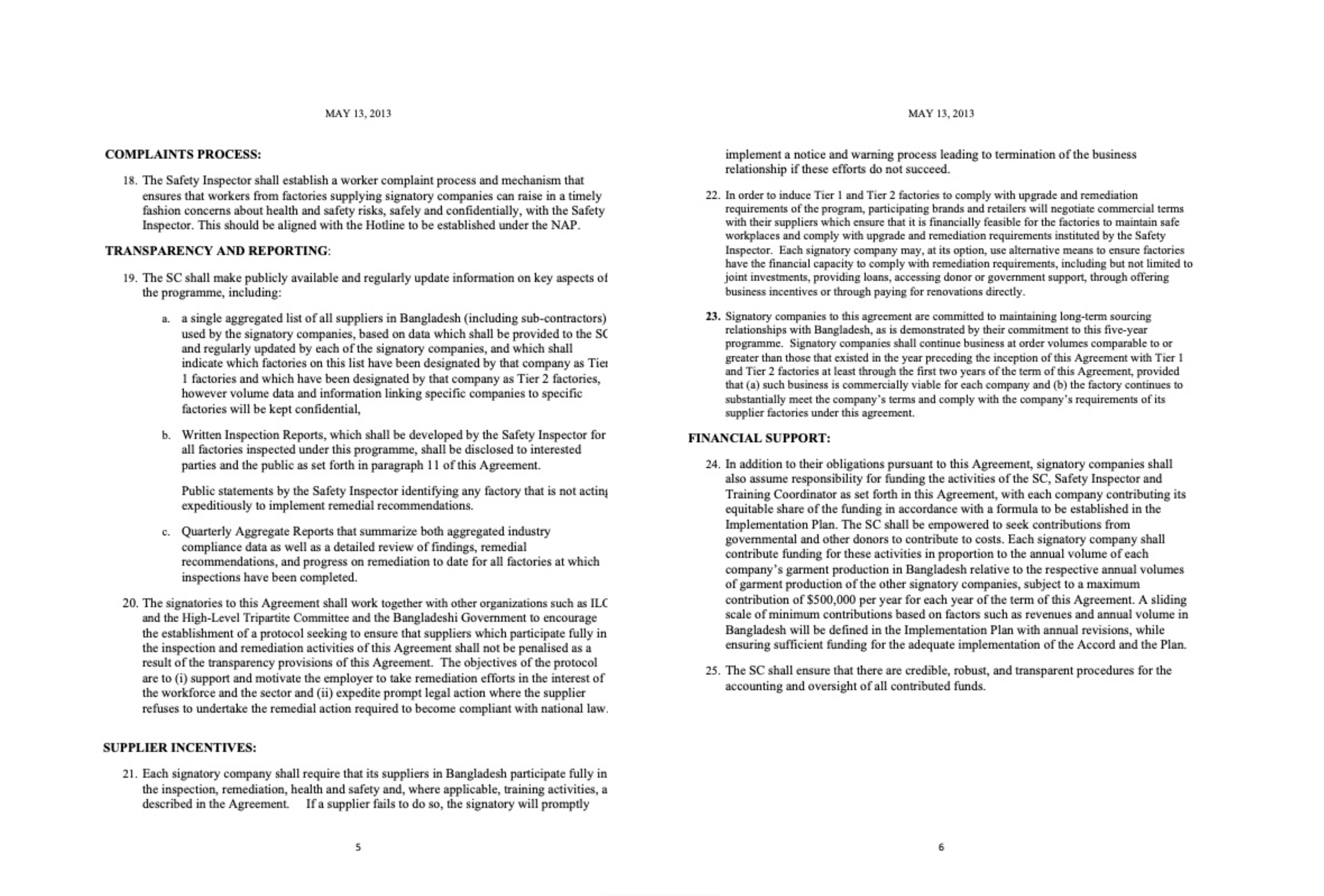
followthethings.com
Fashion
“The Accord On Fire & Building Safety In Bangladesh“
An independent legally binding global framework agreement between fashion brands, retailers & trade unions.
Click the screengrabs to read the agreement on IndustriALL Global Union’s website.
What if brands, retailers and labour unions could agree on a ways to ensure the safety of millions of people working in garment factories to prevent the factory fires and collapses that have killed and injured so many? They did, in the wake of the Rana Plaza factory complex collapse in Dhaka, Bangladesh in April 2013 where more than 1,100 garment workers making clothes for Western high street brands were crushed to death. Under this agreement, health and safety committees would be democratically elected in all factories and would identify and take action relating to concerns they identified. Factories would have independent safety inspections. The results and corrective actions outlined in these reports would be made public. The brands signing the agreement would continue to have their clothes made in the unsafe factories and would fund the corrective actions to make them safer. And factory workers would be trained in health and safety, could make complaints without fear of reprisal and could refuse to work in unsafe conditions. Wow! Could this work? Would brands sign up? Would workers see the benefits? What would happen 5 years later, when the agreement ran out? Could workers in other countries benefit from the same kind of agreement?
Page reference: Chris Crane, Alex Danvers, Robbie Foley, Will Kelleher, Mike Stanton & Adam Williams (2013) The Accord On Fire & Building Safety In Bangladesh (taster). followthethings.com/the-accord-on-fire-building-safety-in-bangladesh.shtml (last accessed <insert date here>)
Estimated reading time: 13 minutes.
Continue reading The Accord On Fire & Building Safety In Bangladesh ![]()



